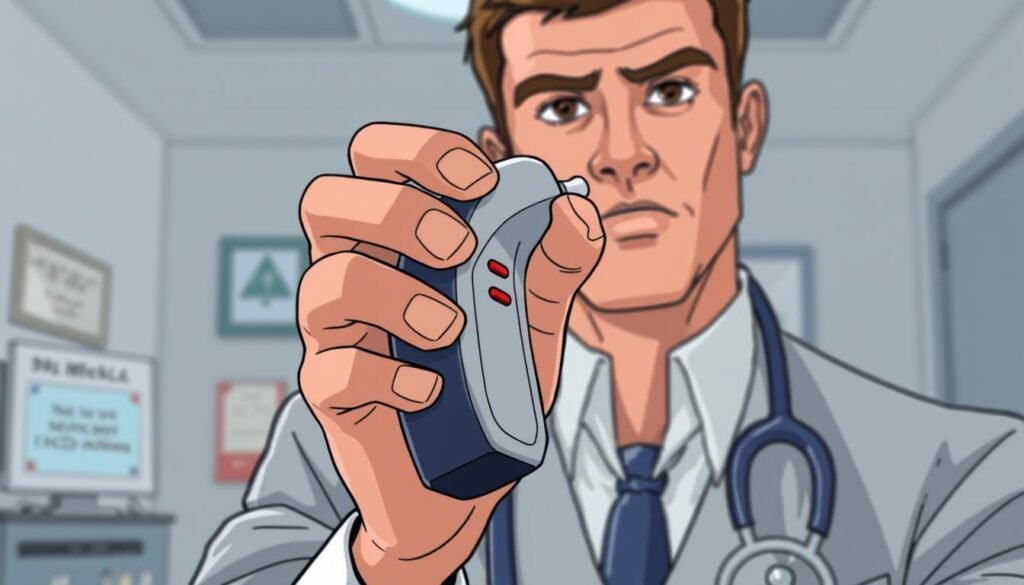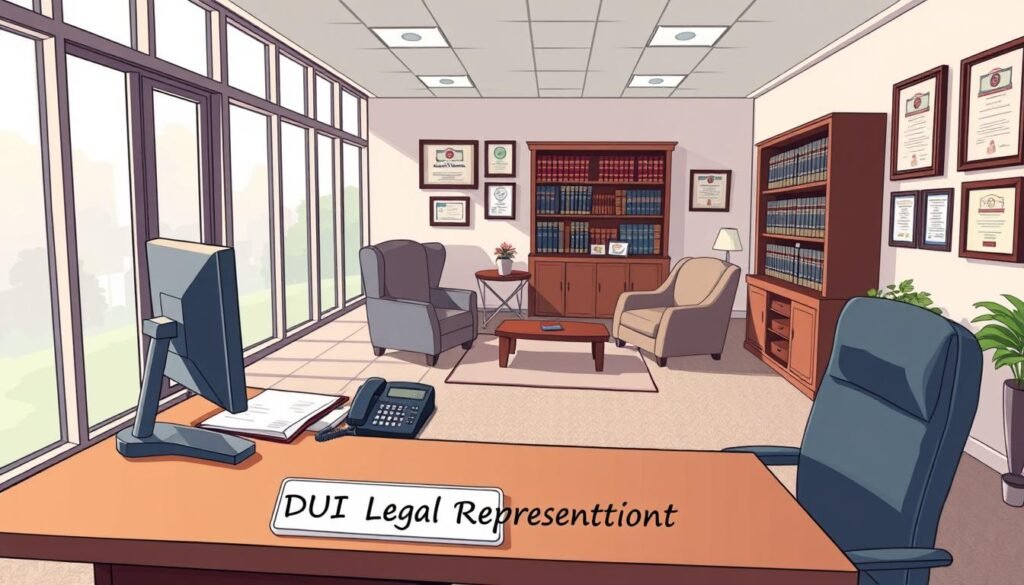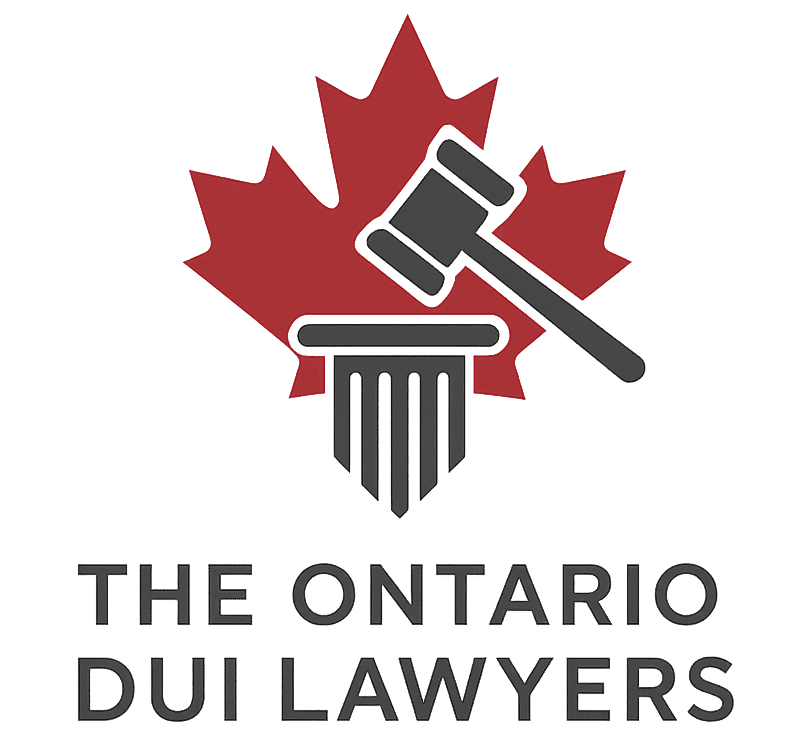First DUI Offense in Ontario: Legal Consequences and What to Expect

Every year, Ontario sees lots of people driving under the influence. What's striking is Ontario's tough response even to a first DUI offense. The consequences can be a big shock and create problems for a long time. These include heavy fines and efforts to change the driver's behavior. Ontario is very clear: it won't tolerate impaired driving. For anyone facing a first DUI in Ontario, the outcomes are severe.
Ontario's laws aim to stop impaired driving through severe and educational punishments. Getting caught can lead to losing your license, paying big fines, and losing your car. You might also have to take classes or go to treatment. And, having a criminal record can make it tough to travel or find a job.
Understanding and dealing with these legal outcomes is tricky. For young or new drivers, and those driving for work, the rules are even stricter. There's no room for alcohol or cannabis use at all. So, first-time offenders face not just immediate problems but also the fear of a criminal record.
- Understanding DUI in Ontario
- Legal Penalties for a First DUI Offense
- Immediate Consequences After a DUI Arrest
- Criminal Record Implications
- Insurance Repercussions
- Navigating the Legal Process
- Impact on Driving Privileges
- Alternative Sentencing Options
- How to Prepare for Court
- Potential Defenses for a DUI Charge
- After the Conviction: Moving Forward
- Learning from Experience
- FAQ
- FAQ
Understanding DUI in Ontario
In Ontario, it's key to grasp DUI, or driving under the influence, rules. These strict rules on impaired driving aim to lower risks and boost safety on roads. Let’s dive into what DUI means in Ontario and look at Toronto’s detailed DUI laws.
Definition of DUI
The DUI definition in Ontario includes driving any vehicle—like cars, trucks, snowmobiles, or boats—when alcohol or drugs impair your ability. This law highlights Ontario’s strict stance against impaired driving. It's all about preventing road accidents before they happen.
Overview of Ontario's DUI laws
Toronto's DUI laws are quite strict, especially for young or novice drivers. It states that drivers under 21 or with G1, G2, M1, or M2 licenses must be completely free of alcohol and cannabis. They use roadside tests and screenings to make sure everyone follows these important rules.
Knowing these rules helps keep Ontario’s roads safer for all. As impaired driving is a big issue, it's on all Ontarians to understand and stick to these laws. This effort helps us protect ourselves and others every time we drive.
Legal Penalties for a First DUI Offense
Getting a DUI in Ontario has serious consequences for your daily life. For a first DUI offense, it's key to know the penalties. These include first DUI offense Toronto fines, license suspension, and maybe jail time for DUI.
Fines and Fees:
- The starting fine for a first DUI is $1,000. This shows Ontario's tough stance on impaired driving.
- You may also have to pay for education or treatment programs.
- Costs can go up with the need for an ignition interlock device and other fees like car impoundment.
License Suspension:
- All DUI offenders lose their license right away. It's part of Ontario's strict no-drinking-and-driving rule.
- How long you lose your license for can depend on your case and the court's decision.
Jail Time Potential:
- If found guilty, you could be jailed between 30 to 90 days based on the offense's details.
- Jail time aims to punish and stop people from doing it again.
The penalties for DUI in Ontario show how serious the issue is. Big fines, jail time, or losing your license are all possible. These penalties punish, educate, and rehabilitate to prevent more DUIs.
Immediate Consequences After a DUI Arrest
Getting arrested for a DUI is scary, with lots of legal steps that follow quickly. In Ontario, police work fast to handle the situation and make roads safe.

Knowing DUI arrest immediate consequences helps people know what to expect. After the arrest, police start their DUI process with on-site tests. Let's dive deeper into this:
Police Procedures at the Scene
- Initial Stop: It starts with being pulled over, where officers check documents and the driver's state.
- Field Sobriety Tests: Drivers might have to do tests that check how well they think and move.
- Screening Devices: Police use devices right there to measure how much alcohol is in the driver's blood.
Breathalyzer and Blood Tests
Using a breathalyzer test in Ontario is a key part of figuring out a driver's alcohol level. If it's too high, the steps include:
- Taking away the driver's license right away to stop more drunk driving.
- Keeping the car away for some time as a warning and solution.
- Charging fines and possibly facing more serious consequences, depending on the alcohol level and situation.
This quick action at the scene keeps the driver and everyone else safer, showing what happens right after getting a DUI. By understanding these police DUI procedures and breathalyzer tests in Ontario, people see how serious DUI charges are and the strict actions police take.
Criminal Record Implications
Knowing the DUI criminal record impact is key for anyone facing DUI charges. A conviction sticks on your record forever. This can affect many parts of your life in a big way.
One of the first things impacted by a DUI record is job hunting. Lots of jobs check your past for crimes. A DUI mark could greatly limit job options, especially in areas needing a clean record or involving vulnerable groups.
- Jobs that require a lot of travel might be hard to get, as other countries could deny entry.
- Work in law enforcement, healthcare, and education could be off-limits with a DUI history.
The long-term DUI effects go beyond just job issues. They can also disrupt your personal life, social ties, and future plans in ways you might not expect.
- Trying for residency or citizenship in another country may become more difficult.
There's a way to ease some long-term problems by applying for a record suspension after some time. It offers a chance to decrease the conviction's impact.
It's crucial to understand how serious a DUI conviction's effects can be now and later on. Making smart decisions and getting legal help is important in facing these long-term DUI effects.
Insurance Repercussions
A DUI conviction brings heavy DUI insurance repercussions. It means you'll face higher insurance premiums, making it hard to afford or even get coverage. Let's dive into how a DUI shakes things up for your insurance:
Increased Premiums and Costs
After a DUI, Ontario insurers see you as a bigger risk. So, they hike up your insurance costs a lot. It's because they think you're more likely to make a costly mistake again. So, the money trouble from a DUI doesn't stop with just legal fees.
- Considerable rate increases: Your premiums could double or triple, based on your past and the insurer's rules.
- Long-term impact: These higher costs can stick around for years, eating into your budget.
Availability of Coverage
Getting car insurance after a DUI isn't simple. Regular insurance companies might turn you away, leading you to look for other options:
- Specialized high-risk insurance providers become a must, often costing a lot more.
- You'll find fewer choices in policy features and flexibility since high-risk plans don't usually match standard policy benefits.
After being charged with a DUI, it's vital to learn how to navigate the DUI legal process. Getting DUI legal representation quickly is also key. Every step you take after being charged matters a lot for your case.

- Write down everything about the incident, like when and where it happened, and any talks with police.
- Ask for the police report. It has important info for defending you.
- Quickly find and talk to any witnesses. What they say could really help if it matches your story.
The value of having a good lawyer for DUI cases is huge. An experienced lawyer can do a lot:
- Look for mistakes in how your tests were handled.
- Talk to the court to try and lower your charges or punishment.
- Stand up for you in court, using their knowledge to help your case.
Being quick and smart in taking these legal steps after a DUI can make the legal process easier. It could also help reduce the harsh outcomes often seen with DUI charges.
Impact on Driving Privileges
The impact of a DUI conviction on your ability to drive is big. It's important for anyone charged with DUI in Ontario to understand what happens next.
First-time DUI offenders usually face a driving ban for at least a year. This shows how seriously Ontario deals with DUI offenses. Offenders are encouraged to join special programs to help them get back to driving.
- License Suspension Duration: After a first DUI, you're likely to lose your driving rights for at least a year.
- Ignition Interlock Programs Ontario: If you qualify, this program lets you drive again. But, your car will have a device that checks if you're sober before it starts.
Following these steps helps those affected by a DUI manage their suspension better. It may even help lessen the penalties if they join the ignition interlock programs in Ontario.
Alternative Sentencing Options
In Ontario, first-time DUI offenders have options beyond traditional legal penalties. DUI alternative sentencing highlights the importance of rehabilitation and community integration. It offers beneficial pathways for individuals aiming to make amends and lower the chance of re-offending.
Rehabilitation programs and community service for DUI offenders are key parts of this strategy. They do more than fulfill legal requirements. They also encourage personal growth and involvement in the community. Let's look at the major alternatives:
- Treatment Programs: Often mandatory, these programs aim to address the underlying issues contributing to the offense, like substance abuse. The 'Back on Track' initiative provides education, treatment, and support, ensuring offenders have what they need to avoid future problems.
- Community Service: Offering service to the community is another sentencing option. It doesn't just help repay society. It also builds a sense of responsibility and belonging in offenders.
By choosing these options, offenders can actively work on making things right and improving themselves. This way, they contribute to creating a safer, more understanding community.
How to Prepare for Court
When you have a DUI court date in Ontario, it's important to prepare well. Being ready helps you handle the court's close look at your case. You need to gather all your court documentation for DUI and learn about DUI court rules. Showing you've taken these steps can help the court see you in a positive light, and it might even affect your case's result.
To get ready for DUI court in Ontario, you need to be set legally and personally. This part talks about getting important papers and understanding the court's ways. It matters a lot for your case.
- Gathering Necessary Documentation: Get together all important papers like police reports, breathalyzer test results, and any letters from the police. These are part of the court documentation for DUI. They're key to defending yourself or knowing what you're charged with.
- Understanding Court Procedures: Learn about the DUI court processes. This includes knowing the steps of such cases, how you should look, and what the hearing is like. Having your attorney help review this can give you insights that fit your situation.

Getting ready for DUI charges in Ontario means being proactive. It involves getting your necessary court documentation for DUI and knowing the DUI court processes.
Being prepared reduces court stress and can make you look better to the court. Taking these steps seriously can help you get a better result in your court case.
Potential Defenses for a DUI Charge
Being charged with a DUI is scary. Yet, knowing effective DUI defense strategies can really change the game. These strategies mainly look at how accurately the DUI evidence collection was done and if the arrest was lawful.
Some common defenses include questioning how breathalyzer tests were done or the arrest process. It's vital to review all evidence thoroughly when fighting DUI charges. A smart DUI lawyer's help is crucial here, as they can spot and use any mistakes or flaws in the evidence for your benefit.
"Every detail in the DUI evidence collection process matters. A single oversight could make the difference between a conviction and a dismissal."
It's essential to carefully look at how evidence was collected and kept. When the breathalyzer test happened and if the device was accurate matters alot for court.
Challenging what the officer saw and said can also help in DUI defense strategies. You might offer other reasons for how you seemed or acted. Or, argue that the officer had no right to stop you in the first place.
- Analyzing the traffic stop to ensure it was conducted legally.
- Reviewing video footage from the arrest to confirm proper procedures were followed.
- Consulting with forensic experts to discuss the reliability and maintenance records of the breathalyzer used.
In conclusion, beating a DUI charge often depends on how well the DUI evidence collection was done. And how good the defense is at pointing out any mistakes or issues in those processes.
After the Conviction: Moving Forward
After a DUI, taking steps toward recovery is vital. Focusing on post-DUI conviction rehabilitation helps fix one's image. It also reduces the effects on future chances.
It's crucial to aim at clearing a DUI record. This can open up new opportunities that past mistakes might block. This process involves following the law and getting support. This helps in fully restoring one's legal and personal rights.
- Enroll in court-mandated rehabilitation programs: Joining these programs shows you're serious about changing.
- Stay fully compliant with all court conditions: You must follow the court's rules and restrictions to succeed.
- Apply for record suspension once eligible: This action can hide your DUI from the public, making social integration easier.
During this tough time, DUI support resources are very helpful. They provide advice, emotional support, and practical tips. The goal is to make the transition smoother. They also help prevent future legal or personal problems.
- Local support groups: Here, you can meet others facing similar issues to share solutions and experiences.
- Professional counseling services: Professionals can advise on handling DUI effects on both personal and work life.
- Educational workshops and seminars: It's vital to stay up-to-date on your rights and DUI law changes.
Using both rehab programs and support groups, people can effectively work on clearing their DUI record. Even though it's hard, staying committed to fixing things leads to a better life after DUI.
Learning from Experience
If you've been charged with a DUI, it's more than just a legal problem. It's time to rethink how you drive. Learning from a DUI means trying not to do it again and driving safely. This helps everyone on the road. Deciding to do better because of your past is the first step to safer roads.
Avoiding Future Offenses
To prevent more DUIs, it's crucial to take real steps. Know how alcohol affects you and plan other ways to get home from events. Being aware and choosing wisely when driving can keep you from making the same mistake.
The Importance of Responsible Driving
Driving responsibly means more than just not driving drunk. It includes following road rules, controlling your car properly, and watching for danger. By driving safely, you protect yourself and everyone else. It shows you've learned from past mistakes and can make the roads safer for all.
FAQ
What constitutes a DUI in Ontario?
What are the legal penalties for a first DUI offense in Ontario?
What constitutes a DUI in Ontario?
What are the legal penalties for a first DUI offense in Ontario?
FAQ
What constitutes a DUI in Ontario?
In Ontario, a DUI means driving when alcohol or drugs impair you. It also counts for boats, snowmobiles, and off-road vehicles.
What are the legal penalties for a first DUI offense in Ontario?
First-time DUI offenders may face fines starting at
FAQ
What constitutes a DUI in Ontario?
In Ontario, a DUI means driving when alcohol or drugs impair you. It also counts for boats, snowmobiles, and off-road vehicles.
What are the legal penalties for a first DUI offense in Ontario?
First-time DUI offenders may face fines starting at $1,000, jail, or have to join education programs. They could also get a permanent criminal record.
What are the immediate consequences of a DUI arrest in Ontario?
Right after a DUI arrest, you could lose your license, have your vehicle taken, and get fined. Refusing breathalyzer and blood tests adds more penalties.
How does a DUI impact employment in Ontario?
A DUI can give you a criminal record, making some jobs harder to get. This is true for jobs needing security clearance or working with vulnerable people.
What are the insurance repercussions of a DUI in Ontario?
After a DUI, expect your car insurance to go up a lot. You'll be seen as high-risk, which might lead to insurance companies denying you standard coverage.
What should be done following a DUI charge in Ontario?
If charged with a DUI, quickly get a lawyer and learn about the court process. This helps build a strong defensive strategy.
How does a DUI affect driving privileges in Ontario?
A DUI usually means losing your license for at least a year. There are programs, like Ignition Interlock, that can give you some driving privileges back after conviction.
Are there alternative sentencing options for first-time DUI offenders in Ontario?
First-time offenders might avoid certain penalties by joining programs like "Back on Track" or by doing community service.
How should one prepare for a DUI court appearance?
Get ready by gathering important documents and understanding court procedures. Working closely with your lawyer is vital to influence the trial's outcome positively.
What common defense strategies can be used against a DUI charge?
Defenses might question the accuracy of tests, police procedures, or test equipment legality.
What steps are involved in rehabilitating your record after a DUI conviction?
Fixing your record takes following court programs and might include asking for a record suspension after some time. It also involves using available support.
How can you avoid future DUI offenses and be a responsible driver?
To prevent more DUIs, change your habits. Plan not to drive when drinking or using substances. Know how these affect your driving and stick to safe driving rules.
,000, jail, or have to join education programs. They could also get a permanent criminal record.
What are the immediate consequences of a DUI arrest in Ontario?
Right after a DUI arrest, you could lose your license, have your vehicle taken, and get fined. Refusing breathalyzer and blood tests adds more penalties.
How does a DUI impact employment in Ontario?
A DUI can give you a criminal record, making some jobs harder to get. This is true for jobs needing security clearance or working with vulnerable people.
What are the insurance repercussions of a DUI in Ontario?
After a DUI, expect your car insurance to go up a lot. You'll be seen as high-risk, which might lead to insurance companies denying you standard coverage.
What should be done following a DUI charge in Ontario?
If charged with a DUI, quickly get a lawyer and learn about the court process. This helps build a strong defensive strategy.
How does a DUI affect driving privileges in Ontario?
A DUI usually means losing your license for at least a year. There are programs, like Ignition Interlock, that can give you some driving privileges back after conviction.
Are there alternative sentencing options for first-time DUI offenders in Ontario?
First-time offenders might avoid certain penalties by joining programs like "Back on Track" or by doing community service.
How should one prepare for a DUI court appearance?
Get ready by gathering important documents and understanding court procedures. Working closely with your lawyer is vital to influence the trial's outcome positively.
What common defense strategies can be used against a DUI charge?
Defenses might question the accuracy of tests, police procedures, or test equipment legality.
What steps are involved in rehabilitating your record after a DUI conviction?
Fixing your record takes following court programs and might include asking for a record suspension after some time. It also involves using available support.
How can you avoid future DUI offenses and be a responsible driver?
To prevent more DUIs, change your habits. Plan not to drive when drinking or using substances. Know how these affect your driving and stick to safe driving rules.
What are the immediate consequences of a DUI arrest in Ontario?
How does a DUI impact employment in Ontario?
What are the insurance repercussions of a DUI in Ontario?
What should be done following a DUI charge in Ontario?
How does a DUI affect driving privileges in Ontario?
Are there alternative sentencing options for first-time DUI offenders in Ontario?
How should one prepare for a DUI court appearance?
What common defense strategies can be used against a DUI charge?
What steps are involved in rehabilitating your record after a DUI conviction?
How can you avoid future DUI offenses and be a responsible driver?
What are the immediate consequences of a DUI arrest in Ontario?
How does a DUI impact employment in Ontario?
What are the insurance repercussions of a DUI in Ontario?
What should be done following a DUI charge in Ontario?
How does a DUI affect driving privileges in Ontario?
Are there alternative sentencing options for first-time DUI offenders in Ontario?
How should one prepare for a DUI court appearance?
What common defense strategies can be used against a DUI charge?
What steps are involved in rehabilitating your record after a DUI conviction?
How can you avoid future DUI offenses and be a responsible driver?
Interested in similar topics to First DUI Offense in Ontario: Legal Consequences and What to Expect? Explore more in the DUI Penalties and Consequences category.
